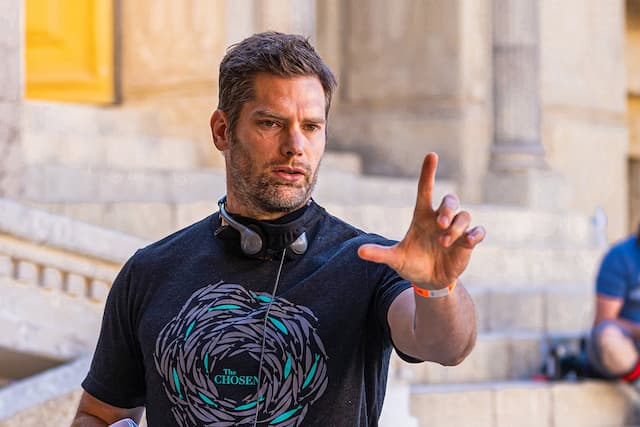Preconditions for Hearing God
Most people go through life with the belief that God keeps his distance, at least in the way he communicates with them.
Given this belief, and a life that seems to reflect it, theirs is the composite God of:
reflections from nature,
deductions from reason,
projections from hope, and
injections from feeling.
The Bible is used to interpret all these, but there is no immediate contact, no direct inputs from God.
Perhaps you are one of those people who has never heard God speak. The biggest reason this has been so is because you never thought you would!
If you are now open to get past that, consider some factors that might reverse this situation for you.
One of the most frequent sayings of our Lord is, “He who has ears to hear, let him hear!”—the implication being that not everyone does have ears to hear.
Do understand that this capacity to hear the Lord isn’t reserved for those more aesthetically inclined or for super-saints well known for their mountaintop spirituality. Other believers can also hear him, but there are preconditions. The first of these is—
Salvation
To hear God speak, one must first become a Christian (I Corinthians 2:14). It is only after conversion that the Holy Spirit will help us develop, what only a Christian can have (John 16:13), a spiritual antenna for receiving divine communications.
Andrew Murray explained the importance of this first step through a historical illustration from the world of science.
When Guglielmo Marconi discovered the means for wireless telegraphy, he found that electromagnetic waves were streaming through the whole world. He discovered he could entrust a message to these waves and it would be conveyed to distant places.
When he sent his first message from England to Italy, it passed through France where there were millions of people who had no idea that any such message was passing. The message was heard and understood only when it reached the reception station which had been prepared for it in Italy.
Transmission is obviously useless unless there’s reception. I could sit under a night sky where the signals, whether analog or digital, are whizzing by, and never see my favorite TV show. I could squint and stare for hours, but doing all that wouldn’t work. I need a television set and some sort of antenna.
Did you know the only time we hear a bullfrog croak is when it vocalizes in its tenor range, and the only time we hear a wren sing is when it tweets in its bass range? Most of the sounds from the frog and the wren are outside the spectrum of our hearing ability.
Spiritually, this principle is also true. We need a spiritual antenna, but not just that, we also need to be on the right frequency.
There is the soul frequency (that’s on the AM band); sometimes God’s message can be heard there; and there’s the spirit frequency (that’s on the FM band); most of the time the voice of God is heard there.
This soul versus spirit factor is major. It represents the foremost difference between the follower of God in the Old Testament and what could be true for the New Testament believer.
Seeing how Word to soul communications failed in the Old Testament, God prophesied, “I will put My Spirit within you...” (Ezekiel 36:26).
Centuries later, Jesus, the originator of the new spirit, began his ministry announcing (to Nicodemus in John 3 and to the woman at the well in John 4) the arrival of this enhanced, advanced new way of communication.
Every Christians has this.
Most Christians have never used it. These are the ones who are soulish, not spiritual; flesh-driven, not Spirit-filled. This is an avoidable tragedy.
When functioning, the sensitivity of our recreated spirit is amazing.
Maybe you’ve heard of the reticular activating system. When positively focused, the reticular activating system can enable a sleeping mother to hear the slightest sounds of her sick baby in another room. When negatively focused, it can filter out the constant noise of nearby construction work or low-flying airplanes.
Taking note of this phenomenon, G.D. Watson—in his book, Our Own God—provided this example from history:
It is said that one of the queens from Europe, amidst the gaiety and merriment of a royal feast, heard the cry of her child in a distant compartment of the palace, and unceremoniously abounded away to it, when no one else had heard the sound..
Oswald Chambers pointed out, “One’s disposition determines what one listens for, and when Jesus alters the disposition he gives us the power to hear what he hears.”
In the spirit realm, we can develop a skilled sensitivity to the various ways God speaks. This development is triggered by—
Desire
Our desire to hear from the Lord should never be characterized by flippancy or by mild curiosity, such as that which encourages people to get involved with Ouija boards and tarot cards.
Nor should this desire be reserved for only the crisis times in our lives, wherein we get in a fix and suddenly we want to hear from God!
Someone asked Oral Roberts what one factor best enabled him to hear God speak. He answered, “When I wanted to hear him badly enough.”
And could that be why God speaks in a still, small voice—because in order to hear, one has to want to hear?
The need, remember, isn’t for the still, small voice only, but also for the listening ear. Stressing this point, A.B. Simpson said, “The first condition of hearing is the desire to hear, the readiness to listen to the Master’s voice, and to know and to do his will for us in everything.”
If there is this preexisting desire to listen, chances are the words spoken will be both valued and obeyed. Besides, how intimate can one be with a thundering deity?
The desire to hear the voice of God isn’t pursued in a vacuum, though; the environment should be one that focuses on—
Scripture
While God can speak to us any way, anywhere, any time, it is of paramount importance to affirm that these gratifying experiences are never substitutes for Bible study and prayer.
As we immerse ourselves in Scripture, we increase our familiarity with the timbre and tenor of God’s voice and become increasingly familiar with the content consistent with his holiness.
Take notice that this meditation on Scripture isn’t confined to a morning devotional but extends throughout the day. Oswald Chambers said, “We have to keep our ears trained to hear God’s voice.”
This training involves a hidden life with God where the heart seeks him throughout the day. By making the hidden life active and prominent, the direction of our life will turn, and the disposition of our life will elevate.
Samuel Brengle’s advised: “Keep within whispering distance of God always.” It is the whisper and not the shout that is God’s preferred way of speaking.
A.B. Simpson further explained, “If he shouted in our ear, it would be an intimation that he was at a great distance or that we were very stupid. There is no sweeter expression of confidence than a whispered secret.”
Meditation isn’t just cerebral and emotional. Successful meditation, just as God told Joshua, has this purpose: “that you may observe to do according to all that is written in it” (Joshua 1:8). In a word, this doing refers to the next precondition for hearing God’s voice—
Obedience
One of the quickest ways to shut down any further communication from the Lord is to simply ignore what he already told us.
Did he, for example, recently prompt us to pray for someone? And did we do it?
Did he, perhaps, prompt some act of kindness or an offer of forgiveness? And did we obey?
If God doesn’t seem to be speaking to us lately, we might want to recall the last thing he did tell us, making sure our response to that is now what it ought to be.
There is a sense in which the story of the boy Jesus at the temple, seemingly lost and certainly left behind, is our story, too.
Like his parents who worried about the whereabouts of Jesus, we have worried about this very thing. And just like Joseph and Mary, we have had to retrace our steps in order to find where we left Jesus.
Often, there is a specific time, a specific place, where we took a wrong turn. And, very likely, there was a specific issue that motivated us to do so.
Regaining our contact with the Lord, then, means we will first identify, and then rectify, the issue that distanced us from him.
We cannot leave this scene at the temple that day without pointing out there is only one reason the boy Jesus astounded the learned doctors with his knowledge of God. It is because, from his earliest years, Jesus had been developing a hearing heart. That’s why he grew in wisdom (Luke 2:52).
And is there not a lesson for us here?
Hannah Hurnard wrote:
The great principle of the hearing heart is that we become as little children utterly dependent and always ready to obey. We have to learn to obey his guidance in small personal matters before we can receive and understand more of his will and purpose.
Martyn Lloyd-Jones once asked, “Have you realized that most of your unhappiness in life is due to the fact that you are listening to yourself instead of talking to yourself?”
It is far better to listen to God, then, based on what he said, talk to yourself—and do what he said.











